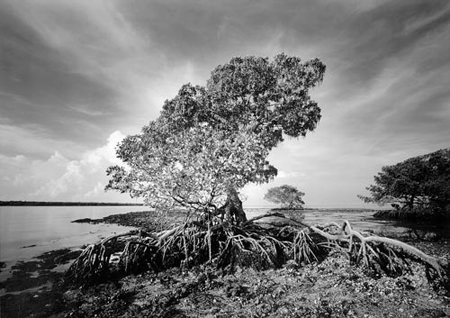The Southeast Environmental Research Center (SERC) conducts environmental research with emphasis on the southeastern United States and the wider Caribbean region, and promotes academic excellence in the environmental sciences. Additionally, SERC provides an organizational structure for regional environmental initiatives and coordination of interdisciplinary environmental investigations in the region.

The Southeast Environmental Research Center, operated through and located on the main campus of Florida International University, is composed of faculty, research associates, students and technicians from a variety of disciplines who work together on environmental research efforts in the Southeastern United States and the neotropics. SERC was founded in 1993 in response to a growing regional need for scientific investigations in threatened environments of South Florida. Research programs developed in Biscayne National Park, Big Cypress National Preserve, Everglades National Park, Florida Bay, the Florida Keys and the Florida Keys National Marine Sanctuary have been instrumental in providing a basis for management decisions for sustaining these fragile resources.
SERC research programs have grown rapidly with funding from the National Park Service, United States Geological Survey, South Florida Water Management District, US Environmental Protection Agency, Florida Department of Environmental Protection, National Science Foundation and many other federal, state and local agencies as well as NGOs and the private sector. In 2001, SERC received National Science Foundation funding to establish a Long-Term Ecological Research program in the Florida Coastal Everglades (FCE-LTER). In addition to fostering research with a long-term perspective, the FCE-LTER has allowed researchers to study regional problems in a larger ecological context and is facilitating expansion of key research ideas to other sites in the Caribbean basin and neotropics.
Through continued extramural funding, SERC has established a well-developed research infrastructure, including highly trained technical support staff, vehicles and boats for accessing most of the region's diverse habitats, and laboratories equipped with state-of-the-art technology. SERC laboratories have advanced capabilities for water quality analyses, stable isotope analysis, ecotoxicological studies, digital microscopy, flow cytometry, and trace metals and organic compound analysis. These research facilities also provide a practical training ground for undergraduate and graduate students at FIU. Students working with SERC faculty and affiliates also benefit from exposure to multiple disciplines, giving them a broad foundation for understanding complex environmental issues.
All these elements are designed to work together within the Center's framework to promote a strong scientific underpinning for protection and restoration of the region's water resources, recreational lands, and natural ecosystems. More About SERC

